
Introduction
When it comes to sewing, one of the most crucial choices you can make is selecting the right sewing thread. Whether you are working on clothing, accessories, or home décor projects, the quality and type of thread you use can significantly impact the outcome of your work. In this article, we will explore various types of sewing threads available in the market and discuss their characteristics to help you make an informed decision.
Cotton Thread
Cotton thread is a popular choice among sewists due to its versatility and durability. It is made from natural fibers, making it suitable for sewing natural fabrics like cotton, linen, and rayon. Cotton thread comes in different weights, ranging from fine to heavy, allowing you to choose the appropriate thickness based on your project’s needs. It is known for its ability to withstand high temperatures, making it ideal for ironing and laundering. However, cotton thread may not be suitable for heavy-duty fabrics or strenuous sewing projects.
Polyester Thread
Polyester thread is another popular option for sewing. It is made from synthetic fibers and provides exceptional strength and resistance to abrasion. Polyester thread is known for its versatility and ability to work with various types of fabrics, including natural fibers, knits, and stretchy fabrics. It is also available in a wide range of colors, making it a great choice for decorative stitching and embroidery. Moreover, polyester thread offers excellent colorfastness and is less prone to shrinkage compared to cotton thread. This makes it suitable for projects that will be exposed to frequent washing or outdoor elements.
Nylon Thread
Nylon thread is a popular choice for heavy-duty and industrial sewing projects. It is an incredibly strong and resilient thread, resistant to chemicals, mildew, and UV rays. Nylon thread is often used for sewing upholstery, leather, canvas, and other heavy fabrics. Its high tensile strength allows for secure stitching and ensures long-lasting durability. While it may not be as easy to work with as polyester or cotton thread due to its stiffness, nylon thread is unmatched when it comes to strength and stability.
Conclusion
Choosing the best sewing thread depends on the type of fabric, project, and desired outcome. While cotton thread is suitable for many sewing applications, polyester thread offers increased strength and color options. Nylon thread, on the other hand, is perfect for heavy-duty projects that require maximum durability. It is essential to consider the characteristics of each thread type and their suitability to your specific project. So, select your sewing thread wisely, and enjoy creating beautiful and long-lasting pieces!
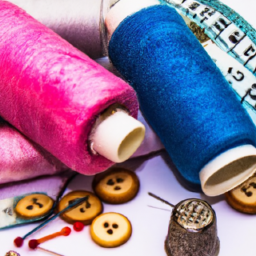
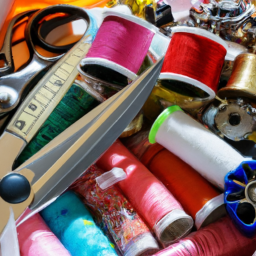
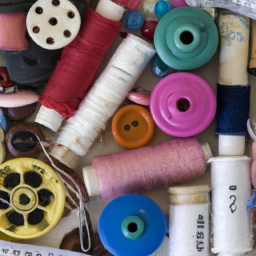
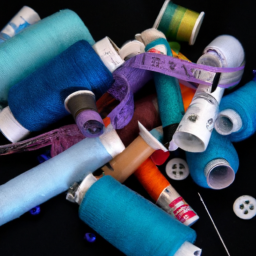
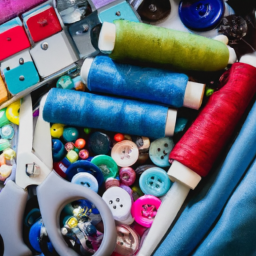
Depends on the project!
Natalia Franco: Check the fabric weight and project needs
The best sewing thread depends on the type of fabric and the end use of the project. Machine stitches made with the wrong thread can be weak and break easily, resulting in the need for re-stitching or a poor finish, so it’s important to select the right thread. To find the right thread, look for a thread with a weight that will provide proper support for the fabric, as well as a fiber and finish that will hold up to laundering, if required.
Great advice!
Most essential tips for finding the perfect thread!
It’s essential to read up on the thread manufacturer’s guidelines for your fabric and project. Knowledge is key in this situation!